From Cologne, we drove through the former West German capital of Bonn to the scenic Rhine Gorge, the section of the Rhine River between Koblenz and Bingen. It is also known as “The Romantic Rhine” because this area is characterized by chains of quaint villages and small towns, steep valley sides that have been terraced for vineyards (the Rhine is known for its selection of quality wines, most notable the Riesling and Pinot Noir varieties), stark cliffs, ancient churches, old monasteries, and ruins of medieval castles perched on hilltops.
We stopped at Boppard, the town where the Rhine takes its greatest bend, and boarded a cruiser. As we enjoyed the relaxing boat ride along the Rhine River while sipping some cold drinks (a pint of hearty German beer for my husband, and a glass of boring juice for pregnant me), our guide told us that the Rhine Gorge is a place of legends and is strongly featured in German folklore.
The most popular is the legend of the Lorelei Rock, the narrowest and deepest point of the Rhine. It was said that a beautiful young maiden named Lorelei whose heart was broken by her treacherous lover, threw herself off the cliff and the echoes that can be heard in the gorge today are her cries of sorrow. In reality, the “murmuring” sound is really caused by the strong currents and the small waterfall in the area amplified by the rock. In fact, the word lureln, from the Rhine dialect, literally means “murmuring.” Another version states that Lorelei is a siren who bewitches sailors when they look up to the rock until they crash their boats and sink.
The many castles lining up the banks of the Rhine have stories of their own as well, but what I clearly remember from our storytelling session aboard the boat is the tale of the Breyer Brothers linked with Castle Sterrenberg and Castle Liebenstein.
It was said that Konrad and Heinrich Breyer, brothers of opposite personalities, fell in love with the same woman, Hildegard, an orphaned daughter of a relative who grew up with them in Castle Sterrenberg. Hildegard married Konrad, the older and fierier of the two.
To heal his broken heart, Heinrich set off to become a knight and tales of his chivalric feats eventually reached the castle. Not to be outdone, Konrad decided to prove his bravery, so he left his bride to fight in Palestine and no news was heard from him since then.
Months later, Heinrich returned, once again victorious, but sadly told Hildegard that Konrad did not stay in Palestine and instead headed off to Greece. Heinrich stayed in Castle Liebenstein and took care of Hildegard like a sister. Konrad returned shortly, but he brought with him a Greek wife. This devastated Hildegard and angered Heinrich. He challenged his brother to a duel but Hildegard stopped them from killing each other. He asked the brothers to reconcile and announced that she was entering the convent.
Realizing that he still loved Hildegard, Konrad fell into a deep depression from guilt and remorse. He become worse when his Greek wife left him for another knight. Heinrich took his brother under his wings so that he wouldn’t be alone in Castle Sterrenberg, but alas, he died from too much sorrow.
Heinrich entered a monastic convent, not far from Hildegard’s convent, after his brother’s death. It was said that when the convent’s bell tolled when Hildegard was brought to her grave, the knell at Heinrich’s convent also rang, for he too, passed away. Now, doesn't this sound like a perfect plot for a soap opera or what? (At least, this is how a former TV producer like me would think...come up with a modern version of this tale for prime time TV).
The enchantment of these romantic stories did not end with the river cruise. As we left the Rhine Gorge in St. Goar and drove through the winding roads of the valley, I was still enraptured by this magical place. Lush forests and diverse flora and fauna unique to this region captivated us as we headed down to Heidelberg.
Photo Credits:
theculturetrip.com, worldtourisminfo.com, tripadvisor.co.nz, Dirk Schmidt (Wikipedia), fodors.com





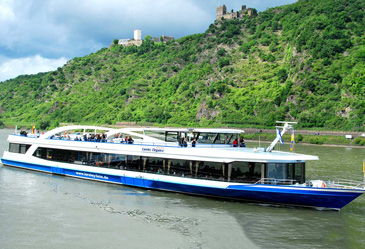







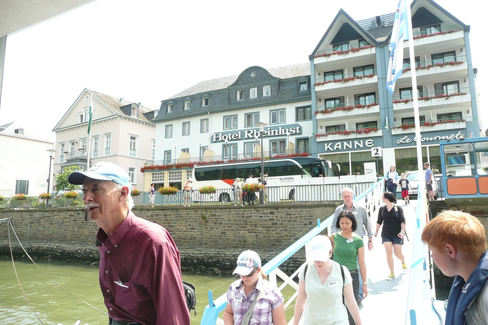









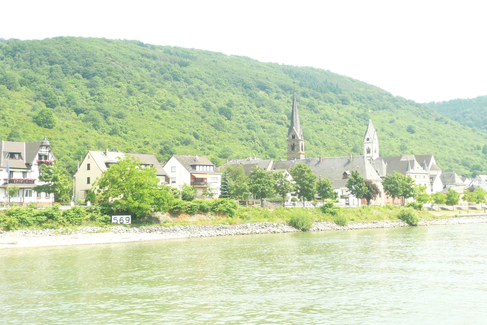















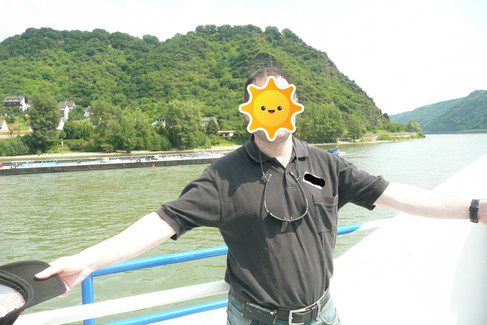

















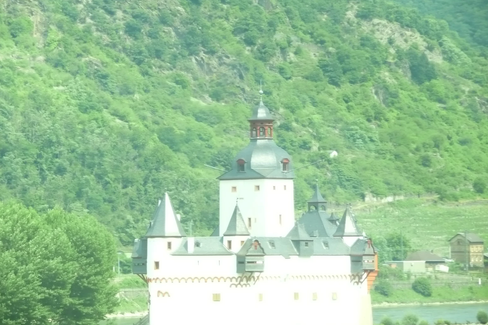










Comentarios